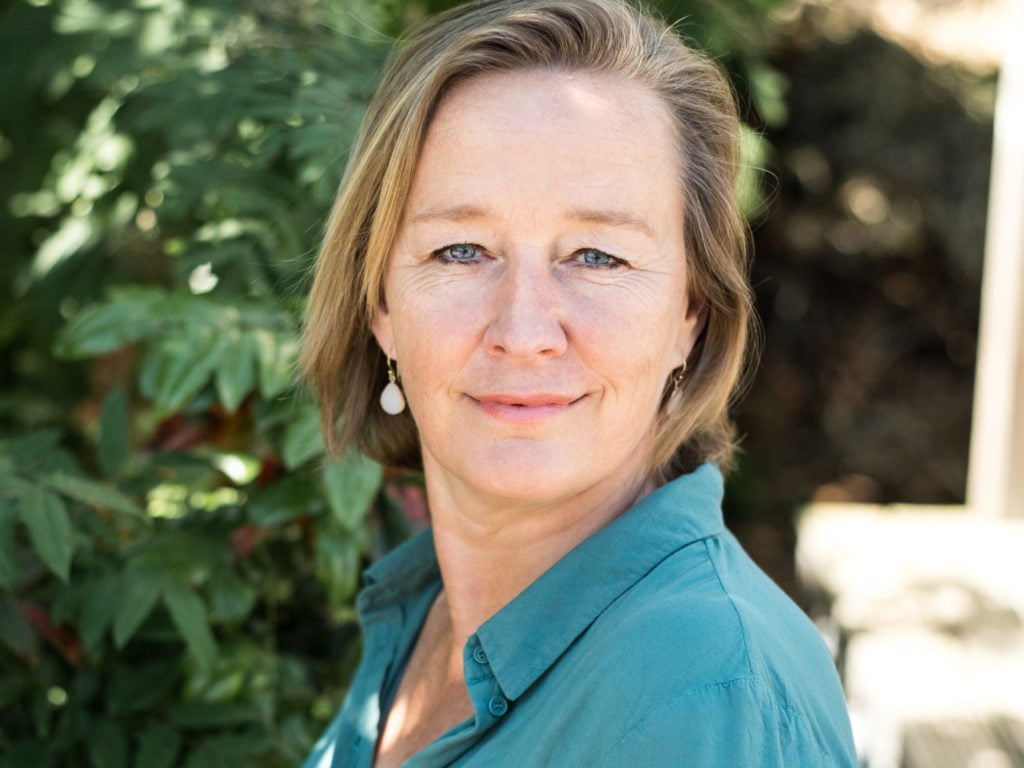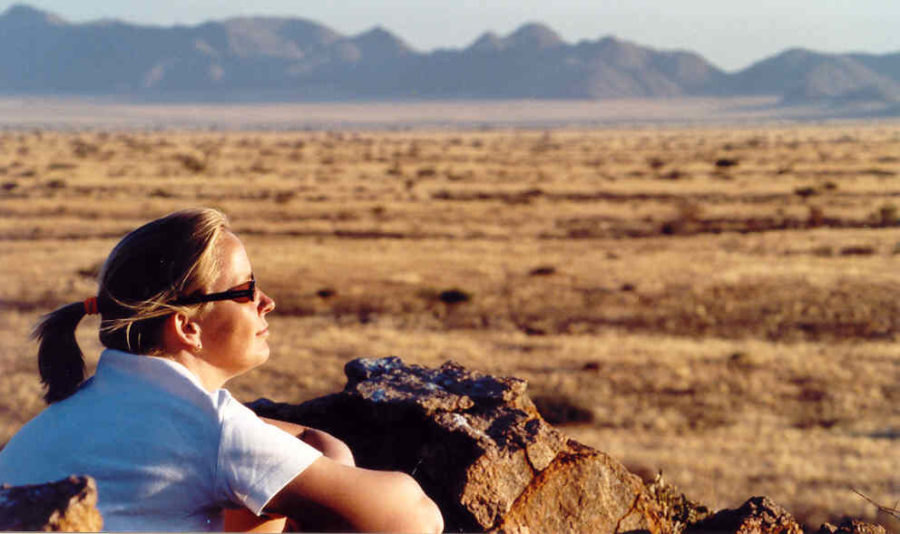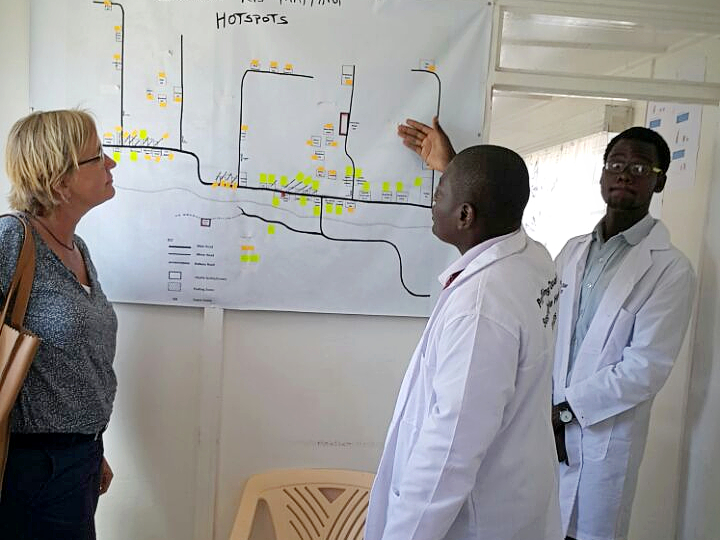She united those around her who possess an equally optimistic spirit to work on aid and development programmes in some of the world’s most challenging regions. Always with a clear focus on impact and results. In October 2021, Ylse van der Schoot, the previous Executive Director of North Star Alliance, a healthcare organisation for hard-to-reach communities in sub-Sahara Africa, started her new job as Chief Operating Officer at Cordaid.

Cordaid’s operations, and the people working on them, keep the organisation’s heart beating. And coordinating over a hundred projects in at least a dozen countries is no mean feat. It takes a seasoned manager with vast know-how in dealing with all the intricate processes on the ground, to ensure the continuity, impact, and success of Cordaid’s work.
With 25 years of experience in development programmes and leading international teams, Ylse van der Schoot is the right person for the job. She took over the position from Sybren Attema, the former CEO of ICCO, the organisation Cordaid joined forces with at the beginning of 2021.
When you look back at the multitude of experiences you have had in many different countries, where do your most fond memories lie?
“The DR Congo immediately comes to mind. It was my second field trip and we travelled down the Kisangani River in a hollowed-out tree trunk. Once we got on land, we had to sit on the back of a motorbike for hours. It was already dark when we arrived in this extremely remote village, and we heard the banging of drums through the rainforest. It was a welcome ceremony. The village elders came to us dressed in traditional robes of animal hide, and one was wearing bright pink flip-flops. Unforgettable. But all the adventures aside, the most important thing I learned in places like these: wherever you are in the world, you will find people working zealously to improve their lives and the lives of those around them, often taking big risks and making sacrifices. Those encounters keep inspiring me, until this day.”

In some of those places, people endure setback after setback, where new conflicts or disasters sometimes undo years of work. Do you ever get discouraged or demoralised?
“Never. I am a true optimist. Of course, I get disappointed when something goes wrong. Or upset even. But I will always focus on the positive element in any situation. The cliché dictates that we are a mere drop in the ocean. I do not believe that. Things are changing. We need to be a movement of like-minded people, working to improve the lives of people who face a variety of challenges.”
“In our line of work, there is nothing better than not being needed anymore. That should be the end goal.”
And now the obvious question: why are you leaving North Star Alliance for Cordaid?
“I have basically made myself redundant. Intentionally. North Star Alliance has decided to transition all coordination tasks from the Netherlands to Africa, so I am closing the doors of our office while my colleague directors in Africa are taking over. Exactly as I think it should be. In our line of work, there is nothing better than not being needed anymore. That should be the end goal.”
Cordaid is also in the process of decentralising and localising operations. Do you see Cordaid phasing out of the Netherlands entirely?
“No, not anytime soon. Cordaid is a different type of organisation, with a very large and loyal constituency in the Netherlands. Cordaid also works on a much broader array of topics and programmes. Nevertheless, we should seriously investigate further decentralisation. What can be done in the countries, should be done there and what needs to be done in the Netherlands, should be done here. There are a lot of good steps being taken towards decreasing the heavy-weighted importance of European head offices in development aid and that is a good thing.”
“You should not approach a crisis with your standard recipe of one-size-fits-all solutions.”
North Star Alliance established 91 clinics in 20 countries in sub-Saharan Africa, making it an important player in healthcare on the continent. Healthcare is also one of the main pillars of Cordaid. What are the operational differences between the two organisations?
“Cordaid focuses on health system strengthening, in many cases through the results-based financing approach, and collaboration with governments. North Star Alliance works on a different level with different target groups. The organisation was created through a public-private partnership between logistics company TNT and the World Food Programme. During the height of the HIV crisis in Africa, WFP and TNT faced many challenges organising their transports due to truck drivers falling ill. They started constructing mobile clinics along the road to improve the health of their employees and contractors. Shortly after, they realised the whole community was in dire need of quality healthcare, and the programme expanded. Now, these clinics are providing basic health care services to large groups of people living and working along the main transport corridors.”

Apart from saving lives, NGOs also aspire to improve the situation in the long term. How can we achieve that?
“You should not approach a crisis with your standard recipe of one-size-fits-all solutions. You can only achieve true progress through a long-term view and an integrated, multidisciplinary approach, taking the local context and input very seriously. Often you will first need to take care of the priorities. Let’s take education as an example. Parallel to improving the schools you should also work on tackling the underlying causes of the lack of education. If that is a war, then you should include peacebuilding in your programme.”
“Other people trust us with their money to achieve important goals. That is not something to take lightly.”
Result orientation and human development should go hand in hand, your CV says. What do you mean by that?
“When you work in our sector you need a burning motivation. But good intentions alone will get you nowhere. You also need to be professional, organised and focused on results. Other people trust us with their money to achieve important goals. That is not something to take lightly. We need to create impact, get things done, but always take care of ourselves too.”
Another remarkable thing popped out from your CV: you enjoy a combination of golf and tai chi. Have I missed the latest craze?
“It’s wonderful! I can highly recommend trying it. Most people, when they play golf, only train one-half of their body. If they are right-handed everything will be focused on the right side. Tai chi golf teaches you to teach yourself to swing with your other hand, using the other half of your brain, and of course of your body. In the beginning, it was an outright disaster, but slowly but surely it helped me significantly in becoming a better player. In tai chi golf warming-up sessions you practice your swing excruciatingly slow. This way you become fully aware of everything you do. That is very helpful, also in other things.”
